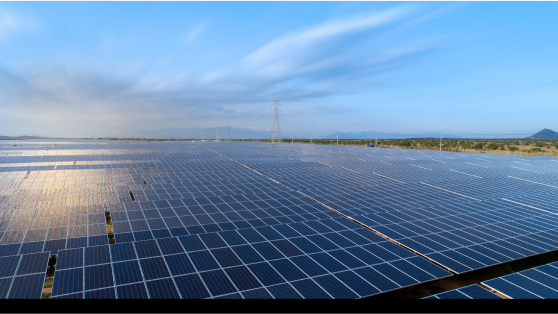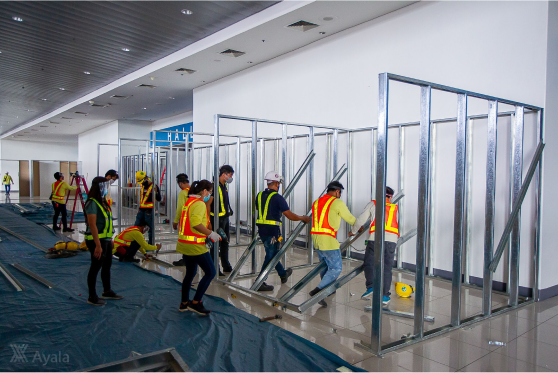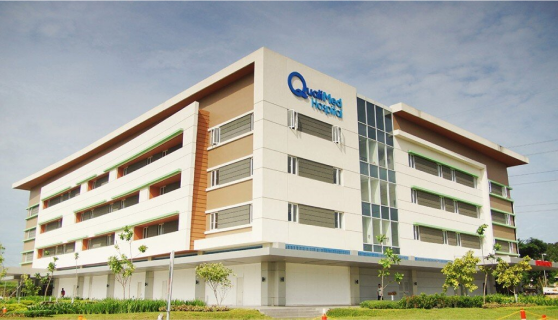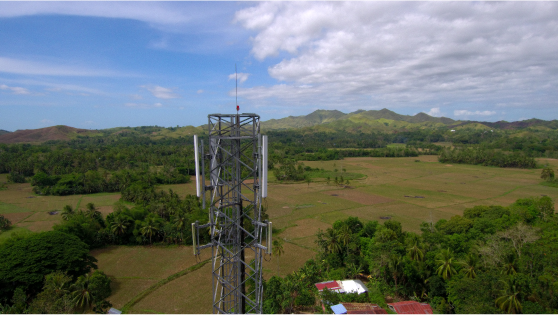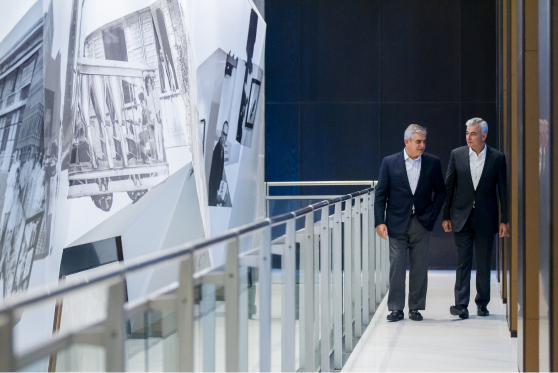To ensure continuity of business and customer service, we implemented protocols to ensure the safety of our critical, essential frontliners who needed to physically report to the workplace. We provided tools-of-work for the majority of our employees so that they could productively work from home. Lastly, through Ayala-funded online courses, we encouraged employees to enhance or learn new skills that will help them better adapt to a digitally, technologically-wired “future of work”.
After protecting our employees, the second phase was to ensure that our business ecosystem stayed in place as we collectively tried to recover. The Ayala group has always believed that our success is intertwined with the success of the broader ecosystem in which we operate.
Ayala Land was the first to implement rent condonations to its mall merchants, while BPI was among the first financial institutions to offer a grace period for loan payments. Similarly, Globe and Manila Water provided grace periods for bill payments—all consistent with the economic stimulus package put in place during the crisis.
Within this business ecosystem, we realized that certain segments would need particular focus. We have around 250,000 SMEs and around 1 million micro-enterprises that are linked to us as clients and partners across our various businesses. The pandemic’s impact on them was more massive. It was imperative that we provide them with support and help alleviate some of the pain points they faced. Hence, we launched the Ayala Enterprise Circle as a support network for the group’s SME partners to help them navigate the crisis by providing business solutions, expert mentorship, training, and business-matching opportunities.
After our employees and our business ecosystem, the third circle of stakeholders was the community-at-large, in aid of national recovery. Even before the COVID-19 pandemic struck, the Ayala group had been working on programs around the evolving, expanded role of private institutions in society.
To ensure that our teams felt financially secure during this period of stress, we rolled out an emergency assistance package for our employees, as well as for those who provide contractual services to the Ayala group (including personnel, maintenance staff, and construction workers) who would, otherwise, have been in a “no-work, no-pay” dilemma.
I strongly believe that our expanded role is to help address the pain points of the community at large, and of the nation even—not just of our shareholders—and to be more inclusive in purpose than the singular focus on profit that the economist, Milton Friedman at the University of Chicago, espoused a little over 50 years ago. This pandemic has made it even more urgent and important for us to be inclusive in our survival and recovery efforts. This pandemic has been most democratic, sparing no one, but its effects have been much more devastating on society’s already vulnerable segments than on larger, more buffered, and diversified entities like ours.
I believe that our sustainable recovery as private institutions can happen only if the communities that support us and work with us also survive and thrive. They need us now, more than ever, to share in their adversity. And it cuts both ways, we also need them—the entire ecosystem—to recover and thrive so as to ensure our sustainable prosperity.
With this philosophy guiding our actions, the Ayala group spearheaded a number of community projects, including Project Ugnayan, a peer partnership among the private sector, that galvanized action to address the immediate food needs of the economically vulnerable families who were caught flat-footed when community quarantine was declared last year. Project Ugnayan was an unprecedented level of cooperation among private sector companies that are normally fierce competitors in the business landscape. Many of the biggest donors committed their support within 48 hours. In all, 270 companies contributed and raised ₱1.7 billion worth of emergency relief assistance and distributed this by enlisting the machinery of PDRF and the Catholic Church to over 14 million individuals.
We were steadfast in our mission to contribute towards rebuilding the nation. Among many other community-based initiatives, the Ayala group led in converting the World Trade Center into a massive quarantine facility and donated a number of molecular testing laboratories and significant quantities of medical supplies to local government units.
We continue to work in partnership with the government to help address society’s pain points. As a founding member of Project T3, a private sector-led initiative, we helped raise our national capacity for testing, treating, tracing, and isolating patients and patient-suspect cases. Presently, we are among the leading private sector firms supporting the government in planning and implementing the national vaccination program.
On this second theme, perhaps among the pandemic’s enduring lessons are the imperative for inclusive recovery and the power of unlocking greater cooperation among private companies and between the public and private sectors. It is encouraging to see this collaborative approach towards the creation of meaningful, scaled solutions in combatting COVID-19 and building back better towards inclusive recovery.
This brings me to the third and final point—how our group is capitalizing on opportunities amid the massive shifts taking place, and how we are positioned for a post-pandemic recovery.
Alongside adversity, there is opportunity.
First, while the pandemic exposed inadequacies and massive underinvestment in the country’s healthcare system, the crisis also reinforced our thesis for entering this industry over five years ago. Healthcare is an industry that is ripe for intervention and disruption.
In 2015, when we started investing in healthcare, we saw that it was increasingly becoming an important sector in the country for several reasons. Households were beginning to spend more on health and wellness, the government was increasing its healthcare investments, and health outcomes were so poor that there was significant headroom for growth. Today, COVID-19 has exponentially expanded the value of the healthcare sector. Despite the deep -9.5 percent economic contraction that the Philippines experienced last year, the healthcare sector expanded by 13.8 percent, due to increasing investments by local players and foreign partners.
AC Health is scaling up its portfolio to take advantage of the momentum in the healthcare ecosystem. Last February, AC Health completed the acquisition of a majority stake in QualiMed Health Network, which operates a chain of hospitals and clinics, expanding its service delivery network by providing healthcare at the tertiary level. The addition of QualiMed to AC Health’s portfolio complements its 85 outpatient clinics and 80 corporate clinics under the Healthway brand, as well as the country’s first specialty cancer hospital, which is set to open in 2023.

